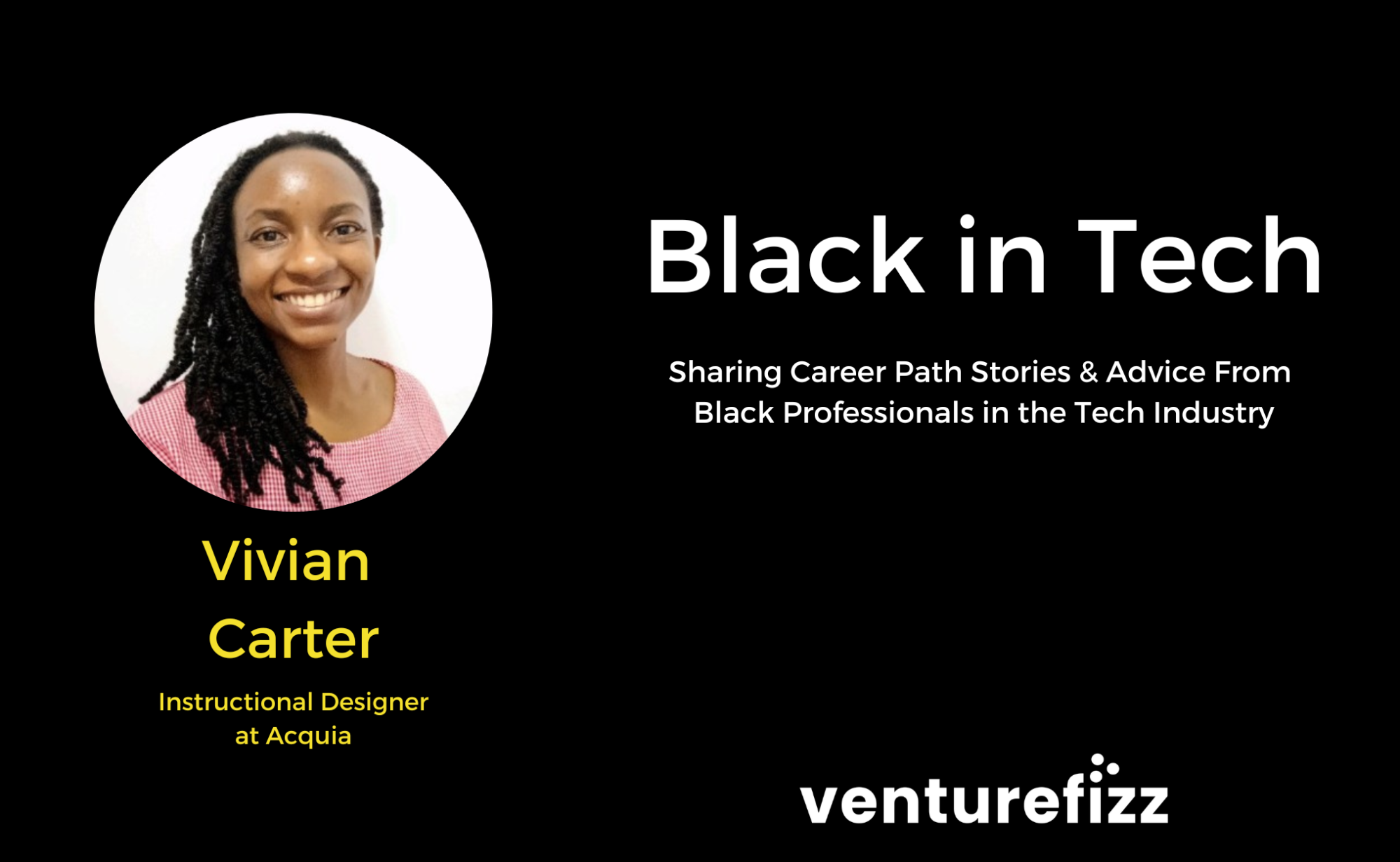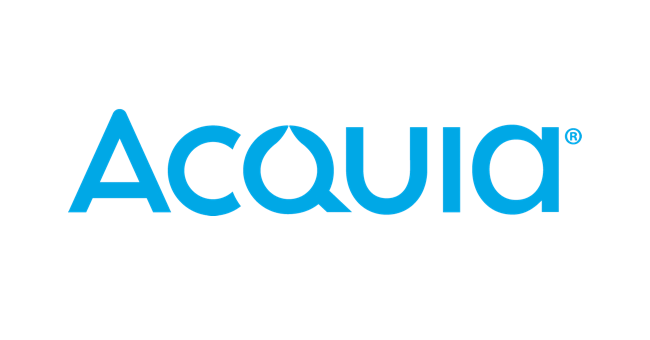Our Black in Tech series features the career path & advice from Black professionals in the tech industry. In this Q&A, Vivian Carter, Instructional Designer at Acquia shares her story.
Where did you grow up and what were you like as a child? What did your parents do for work?
I grew up in two small towns in northern Florida. Both were in rural settings—the type where you’re almost guaranteed to run into someone you know when you leave your house. As a child, I was very quiet and reserved. I loved to read and excelling in school was always easy for me.
My mother worked as a housekeeper and eventually owned her own cleaning company. My father was a construction worker at Disney World for several years. He later helped my mother with her cleaning business. Both of them worked hard, physical jobs and would never have dreamed the opportunity to have a career like mine would be available for their children.
Where did you go to college? What did you study and what did you do after graduating?
I went to a local community college that offered bachelor’s degrees. I graduated with a degree in supervision and management. Immediately after graduating, I continued to work at Nordstrom before deciding to move on to another company to further my career.
Later down the road, I wanted to try something new and I moved to China to become an English teacher. Living in China for 2.5 years was an amazing experience that helped me grow so much as a person. I completed a master’s degree in instructional design while working in China and transitioned to my current career soon afterwards.

What has your career path looked like in tech and the various positions you’ve held before joining Acquia?
Acquia is my first job in tech. Over the last 10 years, I’ve worked in industries such as retail, hospitality, real estate, and international education. In each industry and at each job, I’ve adopted useful habits and processes that helped me improve in the future.
While attending college for my undergraduate degree, I worked at Nordstrom and was promoted to two different people-leadership positions. This was one of my first forays into creating corporate training because there was always a unique method we used that needed to be documented and taught to new employees.
A few years later, I worked as an English teacher in China. I moved there 5 months before the pandemic began and left in 2022. I developed curricula for 3 different grade levels, taught classes, managed projects, analyzed learner data, and many other ad-hoc responsibilities (like most teachers).
Can you share the high-level responsibilities of your current position at Acquia?
I am responsible for managing the curriculum and associated learning projects for Acquia DAM, a digital asset management system. My work enables customers and employees to competently use the software we create. I build courses, administer a learning management system, develop
certification exams, and simplify technical documentation. I also work on special initiatives to help raise the bar within our team such as team training, content accessibility audits, and customer education data dashboards.
What has attributed to your success thus far and what types of obstacles have you had to overcome along the way as a Black professional?
I attribute my success to being flexible, persistent, open-minded, and working systematically. I’m a huge proponent of documenting everything I can about my work and experiences. It helps in so many ways:
- The act of writing things down makes processes or ideas more memorable.
- It facilitates reflection and the identification of ways to improve processes.
- If you ever need to teach your process to someone else, it’s readily available.
As a Black professional, especially as one with locs, I’ve had to overcome obstacles related to negative assumptions about my qualifications, abilities, and professional integrity. Sometimes it is subtle and sometimes it is loud. Either way, it’s a recurring issue that’s important to work towards fixing.
What types of programs and initiatives does Acquia have that support diversity, equity, and inclusion?
Acquia has a very extensive DEI library of courses on its internal learning management system. It covers a variety of topics from responding to microaggressions to recognizing and overcoming biases to building an inclusive workspace.
There’s also a DEI roadmap which delves deeper into multiple subjects throughout the year. The meetings help people learn about DEI and provide an opportunity for people to connect. Additionally, Acquia has employee resource groups (ERGs) and Slack special interest groups.
I am the employee leader for an ERG for Black Acquia employees. Some of our goals include supporting our members in their career goals, educating employees about discrimination, bias, and racism, and providing a space to share lived experiences.
What advice would you give to other Black professionals who are interested in joining the tech industry?
I would treat it like joining any other industry or job. Make sure the position and company aligns with what you want to do in the future. Figure out your ultimate (or even medium-term) career goals, break that down into actionable steps, and consistently work at it. Become proficient at using as much software as possible that will be relevant to your future career.
Networking is always extremely helpful when attempting to get a new job, especially in a new industry. We have the ability to be more connected than ever due to companies like LinkedIn, Fishbowl, Blind, Reddit, and more. Use in-person and online networking to your advantage to get job referrals and insider information about companies.
Don’t lose hope if networking is not your thing. I got my current job from an Indeed application and I didn’t know a single soul here. If cold applying is your strategy, then you definitely need to find ways to stand out or apply to specific jobs with less competition.

While general awareness of the problem of diversity in the tech industry is a step forward, to make a lasting change, real actions need to be taken. Do you have any ideas or suggestions on what companies or employees can do to step up and make a difference?
Ideally the DEI commitment is discussed at the executive level, planned and executed like any other business initiative, and regularly mentioned in company-wide meetings. I believe every employee has the ability to contribute to a more diverse and inclusive workplace, and they absolutely should do their part!
However, the difference of potential change when comparing a person in an entry-level position to someone in the C-Suite is large. Senior leadership sets the tone for how the entire organization behaves and what projects are prioritized, so they are instrumental in creating lasting change.
Current and potential employees also want to see diverse faces in all levels of seniority in the organization. They may feel like DEI statements are empty promises when diversity is only seen in entry level positions.






